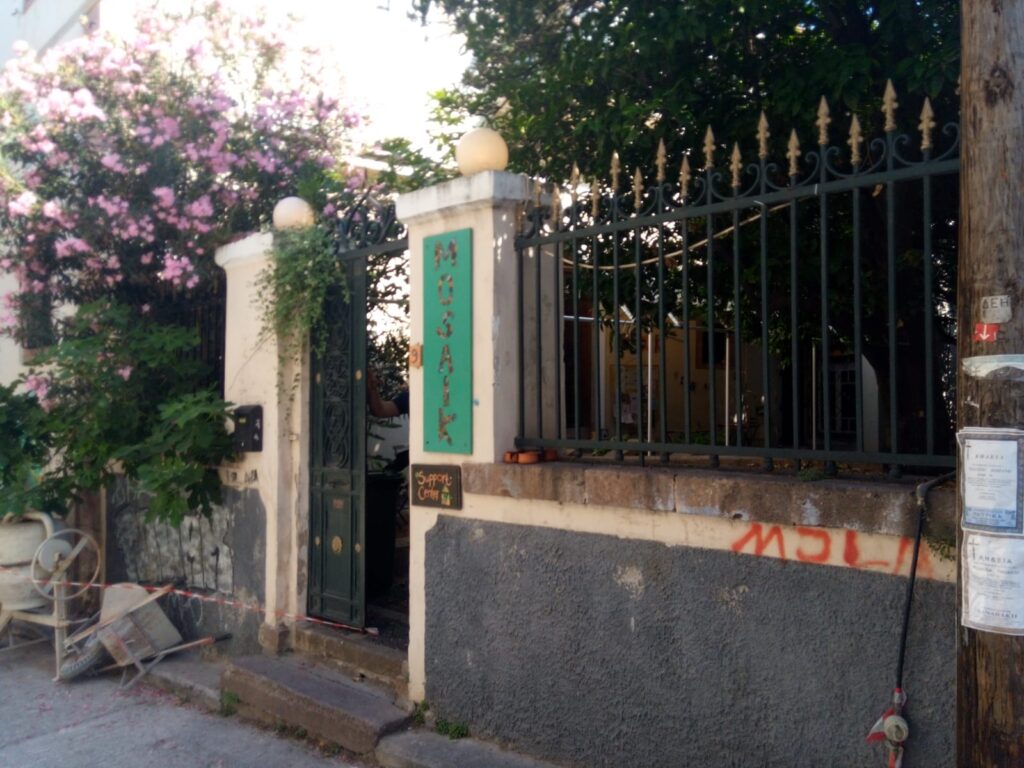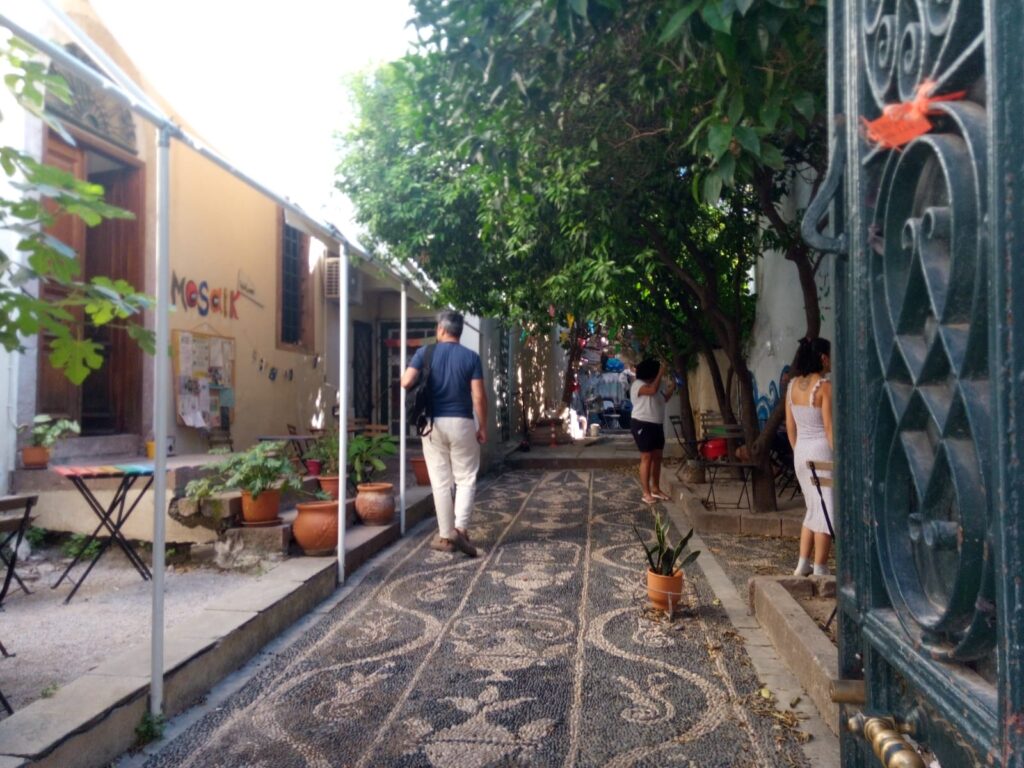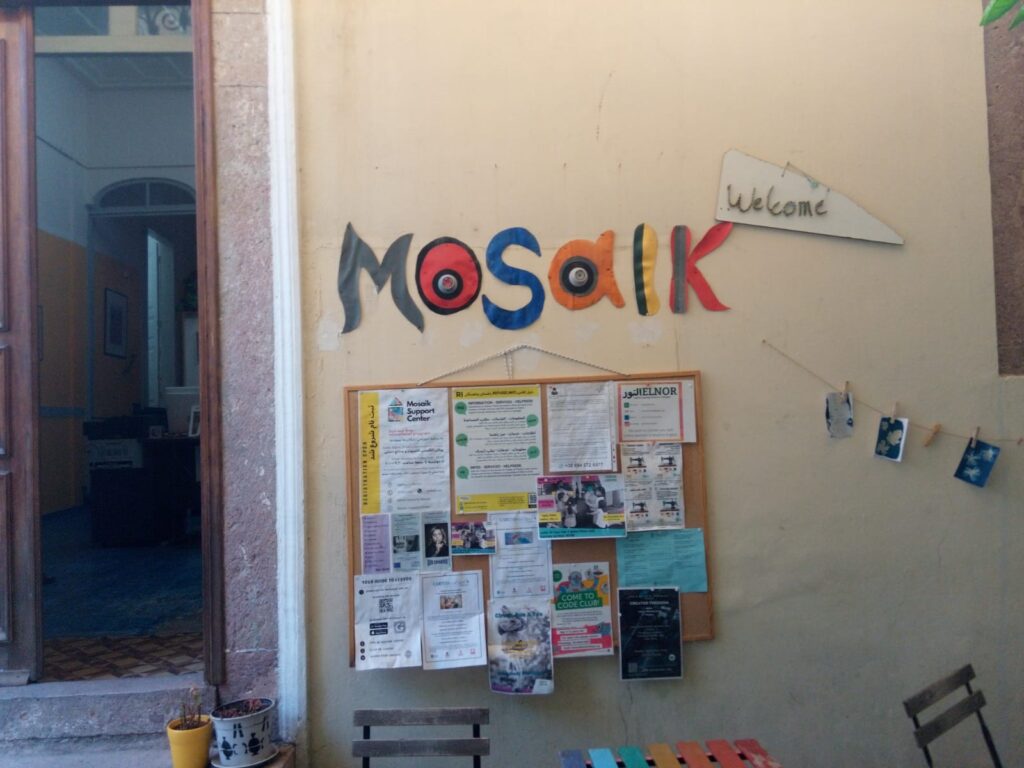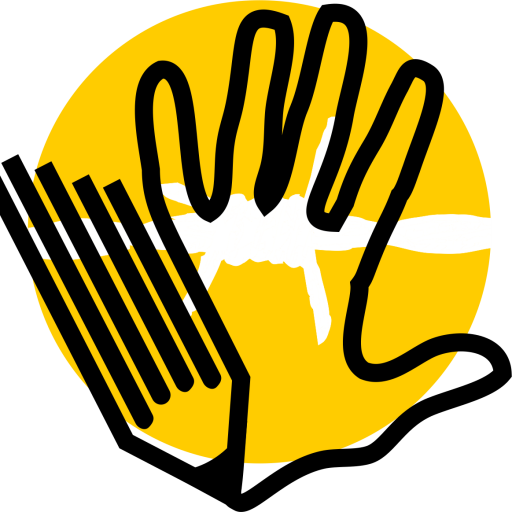IMPLEMENTATION PHASE
During the implementation stage of this project, various activities have been carried out, among which stand out:
TRANSNATIONAL MEETINGS
– FIRST TRANSNATIONAL MEETING (M1 – LE PUY EN VELAY)
11th March 2021, Virtual (Skype).
This first transnational meeting of the project was held on March 11th, after having been postponed in January due to the situation caused by the COVID-19 pandemic.
For the preparation of this meeting, we drafted its agenda, a summary of the project, a PowerPoint presentation of the project and its results, a press release, and supporting documentation: registration, special needs surveys, signature sheets, certificates proving the attendance of the participants, and an evaluation form.
The agenda of the meeting focused on the following topics:
- Reading and approval of the meeting agenda.
- Introduction of the participants.
- Introduction of the project LEARNING HELPING: INCLUSIVE EDUCATION OF ADULT PERSONS THROUGH VIRTUAL VOLUNTEERING.
- Introduction of the project’s results:
- METHODOLOGICAL GUIDE FOR COLLABORATIVE AND INCLUSIVE LEARNING BASED ON DIGITAL VOLUNTEERING.
- VIRTUAL VOLUNTEERING LAB: LEARNING BY DOING, LEARNING HELPING.
- Defining the project’s schedule, activities, and tasks to carry out.
- On-site evaluation of the meeting.
- Open speaking time.
- Reading and approval of the minutes of the meeting.
In this meeting, we presented the project, its characteristics, and the different expected results. With a good participation of the partner entities, we exchanged experiences and realities on how to generate inclusion processes for migrants and refugees, and on the important role that digital volunteering can play in the learning methodology for the development of competences in adult education.
Regarding the Intellectual Output, we introduced its purpose, objectives, and characteristics, both of the Methodological Guide (O1) and of the Virtual Volunteering Lab (O2) to be used to follow the proposed methodology.
Lastly, the schedule, activities, and tasks to be carried out were reviewed, considering the restrictions and recommendations regarding COVID-19; a brief assessment of the situation caused by the pandemic in each of the countries was made, and on how this could condition the course of the project. The evaluation of the Transnational Meeting and the preparation stage was agreed to be carried out online, via surveys.



– SECOND TRANSNATIONAL MEETING (M2 – VALÈNCIA)
07th July 2021, Valencia (Spain).
This first transnational meeting of the project was held on March 11th, after having been postponed in January due to the situation caused by the COVID-19 pandemic.
At the beginning of July (on the 7th) the participants of the partner entities met in Valencia to hold in person the 2nd Transnational Meeting of the Erasmus Plus project “LEARNING HELPING: INCLUSIVE EDUCATION OF ADULT PERSONS THROUGH VIRTUAL VOLUNTEERING”.
The agenda of the meeting focused on the following topics:
- Reading and approval of the meeting agenda.
- Introduction of the participants.
- Follow-up of the project “LEARNING HELPING: INCLUSIVE EDUCATION OF ADULT PERSONS THROUGH VIRTUAL VOLUNTEERING”.
- Progress made in the project’s Intellectual Outputs:
- The “METHODOLOGICAL GUIDE FOR COLLABORATIVE AND INCLUSIVE LEARNING BASED ON DIGITAL VOLUNTEERING”.
- The “VIRTUAL VOLUNTEERING LAB: LEARNING BY DOING, LEARNING HELPING”.
- Review and confirmation of the project’s schedule, next meetings, activities, pilot test, dissemination-visibility, and tasks to be carried out.
- Evaluation.
- Open speaking time.
- Reading and approval of the minutes of the meeting.
The main objective of this first on-site meeting was to present and evaluate the progress made so far and monitor the activities carried out after the virtual meetings held.
Ideas were provided on the criteria and contents of the educational itineraries and on how to adapt the functions of the Virtual Volunteering Lab to the needs of the beneficiaries thanks to the exchange of realities and experiences among the participants, which allowed to definitively define the Intellectual Outputs of the project. The image and logo proposal for the project and the different elements and materials created for its visibility and dissemination were also presented.
Towards the end of the meeting, a brief assessment of the obstacles already overcome was made, and strategies were addressed to face possible new scenarios the pandemic may cause. Lastly, a brief on-site evaluation of the meeting was carried out.
– THIRD TRANSNATIONAL MEETING (M3 – VALENCIA)
17th May, 2022, Valencia, (Spain)
The third transnational meeting (second face-to-face) of the project was held on May 17, 2022 in Valencia, Spain.
The main objectives of the meeting were to monitor the progress of the intellectual output and tangible results, the evaluation of the activities carried out since the last transnational meeting, as well as to specify the pending tasks.
The main topics discussed at the meeting were:
- Reading and adoption of the agenda.
- Monitoring of the intellectual result O1 “METHODOLOGICAL GUIDE FOR COLLABORATIVE AND INCLUSIVE LEARNING BASED ON DIGITAL VOLUNTEERING”.
- Follow-up of the tangible result R1 “VIRTUAL VOLUNTEER LABORATORY: LEARNING BY DOING, LEARNING BY HELPING”.
- Monitoring of tangible results R2, R3, R4.
- Review and confirmation of the project schedule.
- Review of pending tasks.
The meeting began with the approval of the agenda of the meeting. At the next point of the day Redtree presented the progress made to date of the O1 intellectual output and we carried out a participatory debate in which improvements were proposed and each participant made key contributions to the development of the methodology.
Subsequently, Smallcodes was in charge of the presentation of the tangible result R1, in which after the presentation of the programming carried out to date, the participants specified the main tools that the result was going to contain.
On the other hand, the main contents of the teacher advisory service (R3), the design and information that the digital certificate (R2) was going to contain were specified and RedTree presented the progress of the project website (R4).
Finally, once the progress of the results has been presented, we carry out a review and confirmation of the pending activities until the next transnational meeting, as well as the overall schedule of the project.


.
– FOURTH TRANSNATIONAL MEETING (M4 – ATHENS)
June14th, 2022, Athens (Greece)
This fourth transnational meeting of the project was held on-site in Athens, Greece. The main objectives of the meeting were the coordination of the activities and pending tasks to be developed by each of the partner organizations, the evaluation of the activities developed since the last transnational meeting, as well as to finish defining and specifying the last aspects of the project’s results.
Thus, the main topics discussed at the meeting were the following:
- Reading and approval of the meeting agenda.
- Introduction of the participants.
- Follow-up of the project “LEARNING HELPING: INCLUSIVE EDUCATION OF ADULTS THROUGH VIRTUAL VOLUNTEERING”.
- Progress made in the project’s Intellectual Outputs:
- The METHODOLOGICAL GUIDE FOR COLLABORATIVE AND INCLUSIVE LEARNING BASED ON DIGITAL VOLUNTEERING.
- – The VIRTUAL VOLUNTEERING LAB: LEARNING BY DOING, LEARNING HELPING.
- Review and confirmation of the project’s schedule, next meetings, activities, pilot test, dissemination-visibility, and tasks to be carried out.
- Evaluation.
- Open speaking time.
- Reading and approval of the minutes of the meeting.
The meeting began with the adoption of the agenda by assent of the participants, followed by a brief introduction of each of them, as well as of their organizations.
In the third item of the agenda, a review and follow-up of all the work developed so far by each of the participating organizations was made.
The meeting focused then on the results of the project, reviewing the index and the final contents of the Methodological Guide, which at that time was practically finalized. The VIRTUAL VOLUNTEERING LAB, its technical inner workings, and programming, like the automatic selection of the learning pairs who will carry out the itineraries, the registration requirements of the platform, the flexibility of the itineraries, and the functions of the teacher’s profile on the platform, etc. were also discussed.
Once the discussion on the results of the project was concluded, the meeting focused on the project’s schedule and the activities still to be carried out by each of the participating organizations before the next transnational meeting.
Lastly, the different legislation that exists in the field of adult education in the different countries was discussed, as well as the public administrations responsible for this matter in each of the geographical areas.
To conclude the meeting, a brief on-site evaluation was made.
The day after the meeting we were able to visit the facilities of the host organization Lesvos Solidarity, where they presented their main projects and activities, we met their beneficiaries, visited employment workshops, checked out training activities, and met their team of technicians and volunteers.



.
– FIFTH TRANSNATIONAL MEETING (M5-ITALY)
February 9th, 2023 Florence (Italy)
The fifth transnational meeting took place on February 9 in Florence (Italy), at the Smallcodes facilities. The objectives of the meeting were present the intellectual output and the tangible results, review the results of all pilot test carried out, analyze and monitor the dissemination and sustainability activities of all entities and the final evaluation.
Thus, the main topics discussed at the meeting were the following:
- Analysis and evaluation of the previous phase.
- Current situation of the project.
- Presentation of the intellectual output.
- Presentation of the tangible results.
- Analyze and monitor the dissemination activities.
- Review the results of all pilot test carried out.
- Final evaluation.
The meeting began with the adoption of the agenda by assent of the participants, followed by a brief introduction of each of them, as well as of their organizations. In the second item of the agenda, a review and follow-up of the current situation of the project was made.
The meeting focused then on the results of the project. We presented the methodological guide finalized in the implementation phase and the fully developed Virtual Volunteering Lab. During the presentation, the benefits that both results have for the recipients of the project were discussed. The participating social entities presented the pilot tests carried out, exposing the type of actions they have included in the platform, as well as the users benefiting from them.
After that, the meeting was focused on the dissemination activities. The activities carried out to date were exposed and the multiplier events that will take place during the month of February in Lesvos and Valencia were discussed.
To conclude the meeting, a final evaluation was made.



.
.
OTHER ACTIVITIES OF THE IMPLEMENTATION STAGE
PROCESS 11: COORDINATION, EVALUATION AND MONITORING: virtual meetings where the various commissions plan the work to be done and monitor the work done evaluating the results obtained.
A11.1. Virtual meetings for the coordination and communication of the project between the partners.
A11.2. Creation of monitoring reports.
PROCESS 12: PROCESS OF DIGITALIZATION OF THE LEARNING BY DOING METHODOLOGY: various activities aimed at adapting the “learning by doing” methodology to the digital field.
A12.1. Activities for the analysis of the LEARNING BY DOING methodology.
A12.2. Creation of protocols for the digitalization of the methodology.
PROCESS 13: CREATION OF THE VIRTUAL VOLUNTEERING LAB.
A13.1. Activities for content definition.
A13.2. Activities to develop the contents of the manual.
A13.3. Activities for the final layout of the manual.
PROCESS 14: CREATION OF THE ADVISORY SERVICE FOR TEACHERS OF ADULT EDUCATION CENTERS.
A14.1. Activities for the definition of advisory protocols.
A14.2. Activities for the creation of contact mechanisms.
PROCESS 15: PROJECT WEBSITE.
A15.1. Design of the project’s website and its contents.
A15.2. Development of contents and materials.
PROCESS 16: DISSEMINATION MATERIALS.
A16.1. Activities for the creation of dissemination brochures, banners, and other documents.
A16.2. Activities for the definition of virtual badges and their creation.








